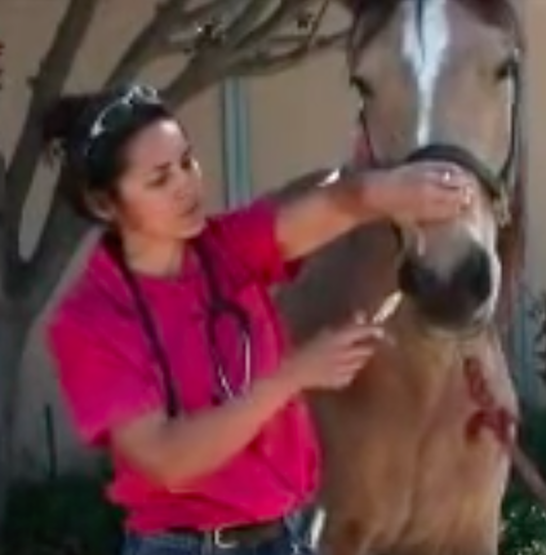Why You Should NOT Rotate Horse Dewormers
Horse deworming isn't optional. It's crucial. Why does your horse need it? Because all horses are at risk for parasite infection, even those that rarely leave home. As a conscientious horse owner, you probably have always made sure to rotate medications in order to protect your horse from these nasty parasites. You probably give your horse Ivermectin and Strongid on a rotational basis every 2-3 months, thinking this is a really great regimen.
Bad news! In recent years, veterinarians have been seeing more and more resistance to these medications: They are just not as effective as they used to be. Rotation is no longer considered a guarantee against infection. And over-use is thought to be a main contributor to resistance.
Bad news! In recent years, veterinarians have been seeing more and more resistance to these medications: They are just not as effective as they used to be. Rotation is no longer considered a guarantee against infection. And over-use is thought to be a main contributor to resistance.
Here is what the veterinarians as the American Association of Equine Practitioners say about rotational deworming:
"Rotating anti-parasitic products every so often is slowly fading into history due to the new information available to veterinarians and horse owners. To increase efficacy, I am now recommending having fecal egg counts performed on horses before deworming. By doing this, we are decreasing the chances of parasite resistance which will keep our current dewormers working longer. Unfortunately, once the parasites become resistant to the deworming products on the market now, we will not have anything effective to keep our horses safe from intestinal worms. When we reach that point, more horses will become anemic and have greater risks of dying. To avoid getting to that stage, I highly recommend fecal egg counts. I am also having clients tell me that they are saving money by not having to deworm as often. I should also mention that pasture rotation is very important for horses that are constantly having a high fecal egg count and are needing to be dewormed several times a year. Dr. Chanda Moxon, Barnesville, GA"
In the future, new medications may be developed. But for now, we need to act decisively to ensure that the medications we have will continue to be effective.
How do we do that? It's actually pretty simple.
The problem is that we are giving Ivermectin or Strongid to horses that aren't infected, or giving them too much or too often. This is the same problem doctors are worried about with respect to antibiotics. We've unwittingly bred some super-bugs by over-using antibiotics!
So just as physicians now are writing prescriptions for antibiotics only when they are absolutely necessary, veterinarians recommend using these parasite medications more sparingly.
This means most horse owners have to forget everything they thought they knew about this aspect of horse care. Instead, we need to adopt new regimens to keep our horses healthy. The easiest way is to follow this simple horse deworming chart from HorseDVM which is based on the recommendations of the American Association of Equine Practitioners.
Here is an excellent brief video in which Dr. Janice Posnikoff demonstrates how to deworm even the finickiest horses.
Happy riding!
Copyright Denise Cummins, PhD March 3, 2016






